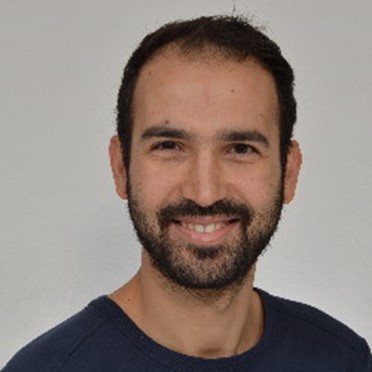Log in and enrol
The Derivatives: a guide to calculation
The Derivatives: a guide to calculation
Master any derivative, zero mistakes every time!
Course description
The calculation of derivatives is a key topic in all differential calculus courses, both in school and in the first year of university. It’s also an essential tool used continuously in advanced courses, not only in Mathematical Analysis but in many technical and scientific subjects.
Last but not least, derivatives are the fundamental tools of all optimization algorithms, including those used in machine learning and deep learning.
This course aims to teach the techniques and rules for calculating the derivatives of any function in a simple yet comprehensive way, ensuring zero mistakes!
Lessons are packed with examples and visuals to clarify techniques, along with exercises to reinforce learning.
Additionally, we explore the integration of Geogebra and Wolfram Alpha to enhance understanding of derivatives and support calculations, and show how ChatGPT can create dynamic learning experiences and personalized practical sessions.
The course includes video lectures (Week 1), solved exercises (Week 2), in-depth notes (Week 3), tutorial for using the digital tools (Week 4) and a final self-assessment quiz.
The video lectures are organized as follows:
- Lesson 1: The concept of the derivative and its geometric interpretation.
- Lesson 2: A table of derivatives for elementary functions is provided for immediate use. Proofs are covered in Lessons 8 and 9.
- Lessons 3, 4, 5, 6, 7: These cover the rules for deriving sums, products, quotients, composite functions, and inverse functions through intuitive demonstrations and examples.
- Lessons 8 and 9: Proofs for the derivative rules of elementary functions such as logarithms, exponentials, powers, sin(x), and other trigonometric functions are presented.
- Lesson 10: The course concludes with a review exercise.
Total workload: 12-15 hours.
This MOOC is offered by Politecnico di Milano in collaboration with the FDS Laboratory of the Department of Mathematics.
This MOOC was produced as part of the Edvance project – Digital Education Hub per la Cultura Digitale Avanzata. The project is funded by the European Union – Next Generation EU, Component 1, Investment 3.4 “Didattica e competenze universitarie avanzate".






Intended Learning Outcomes
By actively participating in this course, you will be able to:
- Establish the geometric link between the derivative and the tangent line to a function at a given point
ESCO: mathematics - Calculate a table of derivatives by correctly applying the definition and the derivation rules
ESCO: mathematics - Identify functions as linear combinations, products, quotients, or the product of two functions, and apply the corresponding derivation rule
ESCO: mathematics - Structure the chain of composition of two functions to calculate the derivative of a composite function using the chain rule
ESCO: mathematics - Recognize a function as the inverse of another and correctly apply the inverse rule to calculate its derivative
ESCO: mathematics
Prerequisites
To follow this course, you need to have an understanding of the concepts of functions and limits for real-valued functions of one variable.
Activities
Over and above consulting the content, in the form of videos and other web-based resources, you will have the opportunity to discuss course topics and to share ideas with your peers in the Forum of this MOOC.
Section outline
-
-
-
In this week, you'll find 9 video lessons on the concept of derivatives, their geometric interpretation, elementary derivatives, and the rules of differentiation.
-
In this week, you'll find a video-exercise and 11 exercises, complete with detailed solutions, which you can work on independently to strengthen your skills.
These exercises are not graded.
-
This week, you'll find some extra insights on derivatives to help you dive deeper into the topic. Make the most of it to boost and broaden your knowledge!
-
-
In this section, you'll find 15 exercises: answer at least 60% correctly to earn your Certificate of Accomplishment!
-
Assessment
Your final grade for the course will be based on the results of your answers to the assessed quizzes. You have an unlimited number of attempts at each quiz, but you must wait 15 minutes before you can try again. You will have successfully completed the course if you score 60% (or higher) in each one of the assessed quizzes. The maximum score possible for each quiz is given at the beginning of the quiz. You can view your score in the quiz on your last attempt or on the 'Grades' page.
Certificate
You can achieve a certificate in the form of an Open Badge for this course, if you reach at least 60% of the total score in each one of the assessed quizzes and fill in the final survey.
Once you have completed the required tasks, you will be able to access ‘Get the Open Badge’ and start issuing the badge. Instructions on how to access the badge will be sent to your e-mail address.
The Badge does not confer any academic credit, grade or degree.
Information about fees and access to materials
You can access the course completely online and absolutely free of charge.
Course faculty

Domenico Brunetto
Teacher
With a PhD in "Mathematical Models and Methods for Engineering," he is an Associate Professor of Mathematics Education and History. His research interests focus on mathematical models and innovative teaching methods, particularly the development and delivery of MOOCs, as well as the introduction of blended-learning methodologies for large classes. He is a co-author and instructor of the Precalculus MOOC on POK and has contributed to the creation of other MOOCs (e.g., BetOnMath for Citizens).

Monica Conti
Teacher
Holding a PhD in Mathematics, she is a Full Professor of Mathematical Analysis at Politecnico di Milano, where she teaches in the civil engineering and architecture programs. Her research focuses on partial differential equations, and she has authored over 80 publications in international journals. Co-author of two university textbooks on Mathematical Analysis and the Differential Equations MOOC on POK, she is also involved in educational experimentation and the use of Artificial Intelligence in math education.

Giulio Magli
Teacher
An astrophysicist by training, he is a Full Professor at the Department of Mathematics at Politecnico di Milano, where he directs the FDS Laboratory for Teaching, Training, and Experimentation. He has promoted and created numerous MOOCs on Polimi Open Knowledge, one of which, Archaeoastronomy, is also available on the Coursera platform. His research mainly focuses on archaeoastronomy, studying the relationship between ancient monuments and the sky. He is actively involved in science communication, both in print and on television.
Contact details
If you have any enquiries about the course or if you need technical assistance please contact pok@polimi.it. For further information, see FAQ page.